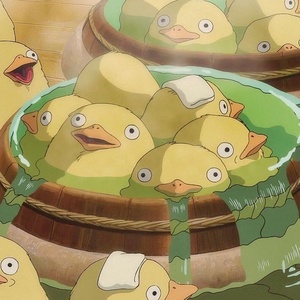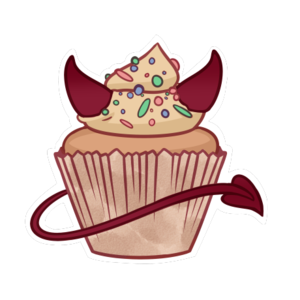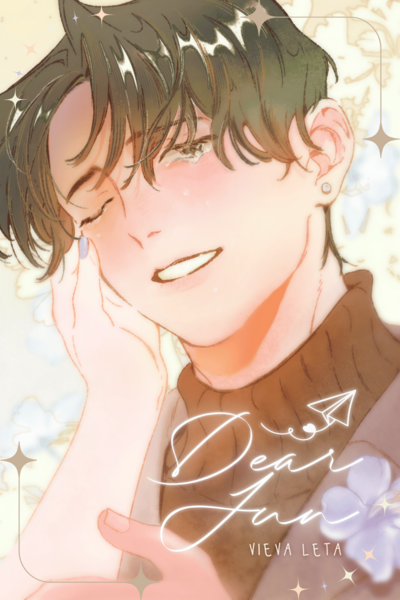On a sunny Saturday afternoon, Junho is nervous. And excited.
“You’re the G.O.A.T of this operation,” Junho says in full earnestness to Sofia, who greets him on the front porch of the Orsini family abode with little fuss—other than an insistence on squeezing his cheeks and kissing them.
“Goat?” Sofia blinks, perplexed.
“Greatest of all time,” he assures her, stepping in after her through the doorway.
Spotting the coat rack, he slides off his duffle jacket and hangs it up. And then promptly internally panics over whether he should slip off his shoes or not. Ciana never mentioned her family’s shoe habits before, and he’d never actually been inside to see for himself. So when in doubt, he slips off his suede Oxford wingtip shoes and places them neatly underneath the spot where his coat hangs.
There, decision made and anxiety assuaged just a bit.
Sofia still doesn’t seem to understand the lingo, but waves it aside, placing a hand at Junho’s back to lead him through the house’s entrance.
What he sees next comes as a stupefying surprise.
The Orsini family lives in the Beechview neighborhood of Pittsburgh, in a Craftsman-style house with low-pitched gabled roofs and broad eaves. Nice, family-oriented, constructed with dark woods and decorative flairs. It’s a fairly big house in the area and one of the better looking ones, with a manicured front lawn, rose bushes, and an assortment of other flowers that line the cobblestone walkway. It speaks of a well-off family who has the taste for nice-looking things.
With that impression, Junho expected some modern design set ripped straight from a home decorating magazine.
The reality is very different.
It’s sparse. The maroon walls that Junho’s halmeoni would have decorated with canvas art are blank. The dark wooden floors are in desperate need of furniture and rugs, and there’s a distinct echo when he speaks out loud.
“Are they moving?” Junho asks, coming to that conclusion when they enter the living room which only has a wall-mounted smart TV, a sofa with black cushions and a wooden frame, and a glass-top coffee table that has nothing on it but a remote and a neat stack of comic books.
“No,” she says, directing him to sit on the sofa with a guiding hand on his back. “Something to drink, mio caro?”
No? Junho sits back, stunned. “What do you have?”
She looks unsure for a moment. “Tea, cranberry juice, and bottled water.”
“I’ll take the bottled water,” he mumbles, just to make it easy.
While she vanishes, Junho has only the curtains to look at, which are actually pretty nice, though they don’t do much to keep out the sunlight. Everything is shiny and too bright, but if Junho squints and looks outdoors, he can see the hint of an incredible backyard.
One word: flowers.
Everywhere.
It troubles Junho for reasons unknown, that everything outside looks so nice while the inside lacks in so many ways.
“Pino and Luca are both at work,” Sofia says upon her return as she hands him the bottled water and takes a seat beside him.
Another surprise.
“Luca works?”
Junho definitely wouldn’t have expected that, given how asocial he is from first impressions. That means he has to deal with people in some capacity outside of school, outside of obligation. It isn’t really as if he needs to work either. From Ciana's accounts, Pino is well-off, and given Luca is still in high school, it seems a matter of intrigue to Junho that he’s already taking his first steps into adulthood so soon.
“He walks dogs,” she explains with a broad smile that makes her smiling eyes seem much brighter. “My grandson has always had an affinity with animals, used to play with squirrels and cats as a child.”
That’s actually... kind of cute. Almost embarrassingly cliche, but cute.
Junho clears his throat. “But there’s no family pet?”
“Pino is allergic,” she says with a laugh. “It was the one thing that made me glad when he left the nest. I am like Luca, I love dogs too much and missed them until I could return to Italy and adopt my greyhounds, Tango and Cha Cha.”
Junho's eyes go wide and he audibly gasps. “Oh my god—Tango and Cha Cha, that’s amazing.”
She eagerly pulls out a smartphone, responding in kind to his excitement. “I have pictures.”
“Show me!” he urges, and for a moment he’s distracted from his purpose for the house visit, awwing and oohing at pictures of the dogs in the variety of clothes and costumes Sofia has put them in—his favorite is the Frankenstein and Frankenstein’s Bride costumes, both of which Sofia claims to have made herself, hand sewn no less.
From there, the conversation devolves as she explains to him her love of films, and in specific, old horror films like Dracula and The Wolf Man. He sits for a good half hour just listening to her chat about her dogs, movies, and Italy. From all of it, he discovers that Sofia immigrated to the states when she was forty-five, when Pino was still just fifteen years old. Pino has brothers, three of them, all of them much older, who stayed behind in Italy when they'd made the move.
“We’d moved here for my husband’s work,” she explains, flipping through the photos on her phone to show him a picture of a youthful Gabriele Orsini who’d thrown an arm around a much younger, but still just as smiley, Sofia. “This is when we first got married—ah, and this,” she says, coming onto a photo of a Luca-look-alike with a just-as prickly expression, “is my Giuseppino.”
“Wait, wait, wait, hold on.” Junho stares at the picture. “You mean to tell me, that that is Pino as a teenager?”
“He looks just like Luca, doesn’t he?”
“Same expression and everything,” Junho agrees, not quite being able to match the tetchy attitude of a younger Pino with the Pino that Junho grew up around, who can get just as rowdy and cheerful as Junho can if he’s had enough coffee. “So, I’m guessing he changed a lot from when he was younger?”
“Oh, no. Pino is still a grumpy boy who needs everything to be in order,” she explains. “Why do you think the house is bare? He prefers a minimalista life.”
“I guess they don’t have a lot of company over then.” It also explains why Ciana never invited Junho in when he picked her up to go out during the periods of time she wasn’t in the hospital. He'd always been curious, but he'd never asked.
“No, not very many.” Sofia purses her lips, seeming hesitant for a second before sighing deeply. “It is my fault, I think. I was never able to give enough to my sons. I could never give them a good home and I fear he learned this from me.”
This is something Junho is completely out of depth with as he’s never experienced living in a ‘bad’ home.
Junho comes from an upper class family, bordering on upper, upper, if his mother’s second husband’s connections are included. His father makes great money as an oncologist, and his grandparents are even better off as owners of a Korean BBQ restaurant chain with more than fifty locations in the eastern half of America alone. He’s always had a good home environment, especially with his grandmother’s insistence on redecorating whenever it strikes her fancy, and she has great taste.
Not even that, he’s grown accustomed to having cleaning service done for him, so keeping up with household chores is as alien as having to shop for clothes on his own—again, his grandmother has great taste in everything—and he barely has any say in the state of his own bedroom.
So then, what could he even say to Sofia, who blames herself when he can’t even speak to her experiences? For all he knows, she can even be right, and if he told her anything different, how can that help her?
“If he learned it from you,” Junho mumbles, scratching at his nose, “then does that have to be a bad thing? If he were unhappy with anything, he’d try to change it himself, wouldn’t he? I mean, we can’t blame all of our problems on our upbringing. There’s plenty that continues to be a problem only because of the choices we make and continue to make, and shouldn’t we take responsibility and own the consequences for the situations we create for ourselves?”
Sofia turns quiet, blinking rapidly, and Junho wonders if he’s said something wrong, internally panicking over her reaction.
“I hope what you say is true,” she says finally, and then laughs, giving him permission to exhale the breath he’s been holding. “Here I am being comforted by a child—che cosa sono diventato?”
He has no idea what that means but he rolls with it.
“Hey, I’m an adult now,” Junho corrects with a grin. “I turned nineteen last month.”
At that, she just cackles. “You’re still a child.”
Junho’s responding pout does not do much to dissuade that notion.
She blinks and refocuses abruptly. “I almost forgot! The letter, what did Ciana say?”
“Well, I have to do the impossible,” he begins and then completely spills everything. From Ciana’s concern over her family, to his role as her mouthpiece, to his worry over attempting to connect with Luca, and finally, he ends on, “How certain are you that he won’t beat me up? As you can see, I’m delicate and I bruise easy.”
Sofia laughs, slapping his knee with surprising strength. “He will not beat you up. He will ignore you.”
“Oh, good. So mission failure, huh?” Junho leans back into the couch and sighs, thoughtfully tapping his chin as he gives his dilemma a ponder. “But I won’t give up, not even if he punches me."
“He will not punch you,” she assures him.
Junho waves that off—he can definitely see Luca punching him—and then, struck by a sudden curiosity, swivels around. “Where’s Rico? Not home?”
“He is at a park with friends,” she says and Junho tuts at the news. Kid has no loyalty. Junho told him to keep his weekend free. “He said he should be back before two though.”
Junho hums and then out of necessity asks, “When will Luca be getting in?”
To that, she seemingly has no idea.
Hm.
“Sofia—no, Nonna, I have a favor to ask.”
“Sì,” is her instant reply, as she smiles kindly, “I will do it.”
Which is the first step into unfolding a plan that isn’t actually a plan and more of an instinct that he has no idea what to do with. He does know something else though: he won’t be going home without at least talking to Luca.
Preferably for more than a few seconds.













Comments (13)
See all